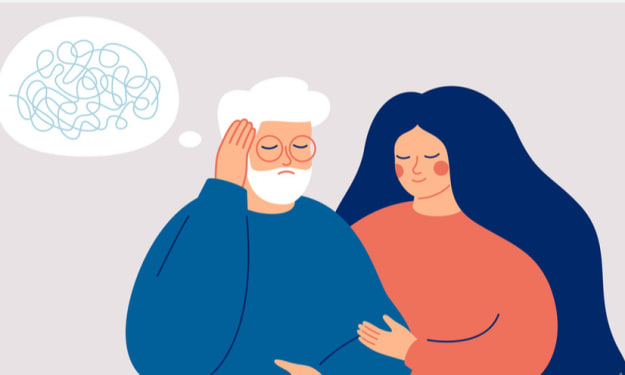
Introduction
Delusions are false beliefs that are resistant to reasoning and evidence. Erotomania, a subtype of delusional disorder, is characterized by a profound and fixed belief that another person, often of higher social or romantic status, is deeply in love with the delusional individual. This condition can have far-reaching consequences for those affected, leading to significant distress and impairment in their lives. In this article, we will delve into the intricacies of erotomania, exploring its symptoms, causes, and the ways it can be treated both medically and psychologically.
1. The Nature of Erotomania
Erotomania is a rare and often misunderstood mental health condition, belonging to the category of delusional disorders. Those suffering from erotomania exhibit a persistent, unshakable belief that someone, typically a public figure or person of higher status, is deeply in love with them. This delusion is often based on misinterpreted or imagined cues, such as glances, gestures, or even media broadcasts. The individual with erotomania is convinced that this love is concealed from the public eye or that there are secret, covert communications between them and the object of their affection.
2. Symptoms of Erotomania
People with erotomania can exhibit a wide range of symptoms, but the core features include:
A. Fixed Delusion: The primary symptom of erotomania is a firmly held belief that an unattainable person is in love with them, despite a lack of evidence or contrary proof.
B. Misinterpretation of Actions: Individuals with erotomania often misinterpret the actions and words of the supposed love interest as coded messages expressing their love and desire.
C. Inflexibility: The delusion is highly resistant to correction or reasoning, leading the person to dismiss any evidence to the contrary.
D. Stalking Behavior: In some cases, erotomania may lead to stalking behaviors where the individual believes they are pursuing a legitimate romantic relationship with the object of their affection.
E. Emotional Distress: This condition can cause significant emotional distress, as the person's belief in the love of the unattainable person can become all-consuming. This condition can cause significant emotional distress, as the person's belief in the love of the unattainable person can become all-consuming.
Types of Erotomania
Erotomania can be classified into two main types:
a) Primary Erotomania: In this form, the delusion of love is the primary and dominant symptom, with no other major psychiatric disorders present.
b) Secondary Erotomania: Secondary erotomania occurs in conjunction with other psychiatric conditions such as schizophrenia, bipolar disorder, or major depressive disorder. The erotomanic delusion is not the only prominent symptom.
II. Possible Causes of Erotomania
The exact causes of erotomania remain unclear, but several factors may contribute to its development:
I. Brain Abnormalities: Some research suggests that brain abnormalities, particularly in the frontal lobes, may play a role in the development of delusional disorders like erotomania.
II. Psychological Factors: Childhood trauma, abuse, or dysfunctional interpersonal relationships may increase the risk of developing erotomania.
III. Neurochemical Imbalances: Disruptions in the balance of certain neurotransmitters, such as dopamine and serotonin, may also be linked to the development of delusional disorders.
IV. Genetic Predisposition: While there is no direct genetic link to erotomania, having a family history of psychiatric disorders may increase the risk.
V. Social Isolation: Social isolation and loneliness may contribute to the development of erotomania, as the individual may create a fantasy world to cope with feelings of abandonment.
III. The Beginning of Erotomania
The onset of erotomania can be gradual, making it challenging to pinpoint when the delusion begins. Many individuals with erotomania do not seek treatment until the delusion becomes distressing or leads to problematic behaviors. Here's a general progression of the condition:
Social Isolation: The individual may start experiencing social isolation or feelings of loneliness, which may trigger the need for connection and validation.
Imagined Encounters: The person may have a chance encounter with the object of their affection or see them in the media. This chance event can trigger the delusional belief that there is a special connection.
Misinterpretation: The individual begins to misinterpret actions, words, or gestures from the object of their affection as signs of love and attraction.
Escalation: As the delusion intensifies, the person may start to engage in behaviors like writing love letters, sending gifts, or even stalking in an attempt to establish a connection.
Social Dysfunction: Erotomania can lead to severe social dysfunction, as the individual becomes increasingly absorbed in their delusion and isolated from their real-world relationships.
IV. Living with Erotomania
Living with erotomania is challenging, not only for the affected individual but also for those around them. This condition can have profound implications for personal relationships, work, and overall quality of life. Common issues faced by individuals with erotomania include:
Strained Relationships: Erotomania can strain relationships with friends and family who struggle to understand or cope with the delusional beliefs and behaviors.
Legal Consequences: Stalking behaviors associated with erotomania can lead to legal consequences, including restraining orders and criminal charges.
Employment Problems: Delusional beliefs and behaviors may interfere with an individual's ability to maintain employment.
Emotional Distress: Living with erotomania can cause significant emotional distress for the person experiencing the delusion.
Treating Erotomania: Medical and Psychological Approaches
Erotomania is a challenging condition to treat, primarily due to the individual's resistance to changing their delusional belief. Treatment typically involves a combination of medical and psychological approaches aimed at alleviating symptoms and helping the individual manage their condition.
Medical Treatment:
1) Medication: Antipsychotic medications, such as Risperidone or Olanzapine, may be prescribed to help reduce the intensity of the delusion and manage associated symptoms like anxiety or agitation.
2) Antidepressants: In cases where depression is a co-occurring condition, antidepressants may be recommended to address the underlying mood disorder.
3) Mood Stabilizers: For individuals with co-occurring bipolar disorder, mood stabilizers like lithium may be prescribed.
Psychological Treatment:
Cognitive-Behavioral Therapy (CBT): CBT can help the individual identify and challenge their delusional beliefs, providing a structured approach to addressing irrational thoughts.
Supportive Therapy: Supportive therapy can provide a safe space for the individual to express their feelings and experiences while also offering emotional support.
Reality Testing: Therapists may use reality testing techniques to gently confront the individual with evidence that contradicts their delusion, encouraging them to reevaluate their beliefs.
Family and Social Support: Involving family members and loved ones in the treatment process can help create a supportive environment for the affected individual.
Hospitalization: In severe cases where the individual's safety or the safety of others is at risk, hospitalization may be necessary to stabilize the individual and ensure their well-being.
Legal Interventions: In cases where stalking or harassment is involved, legal interventions such as restraining orders or court-mandated treatment may be necessary.
Long-Term Management: Erotomania is a chronic condition, and long-term management is often required. This may involve ongoing therapy, medication, and support to help individuals cope with their condition.
VI. Conclusion
Erotomania is a complex and challenging mental health condition that affects the lives of those who experience it and their social circle. Understanding its symptoms, causes, and potential treatments is crucial for providing support and help to individuals living with this disorder. Medical and psychological approaches can offer hope and assistance in managing erotomania, allowing individuals to regain control of their lives and potentially reduce the impact of this distressing delusion. If you or someone you know is struggling with erotomania, seeking professional help is the first step towards managing this condition and improving overall well-being.
About the Creator
Shams Ul Qammar
I'm a psyche student who loves raising awareness about mental health. Together we can delve into the world of mental health issues. My responses will be based on my studies. Let's embark on this journey of exploration together!
Enjoyed the story? Support the Creator.
Subscribe for free to receive all their stories in your feed. You could also pledge your support or give them a one-off tip, letting them know you appreciate their work.






Comments
There are no comments for this story
Be the first to respond and start the conversation.